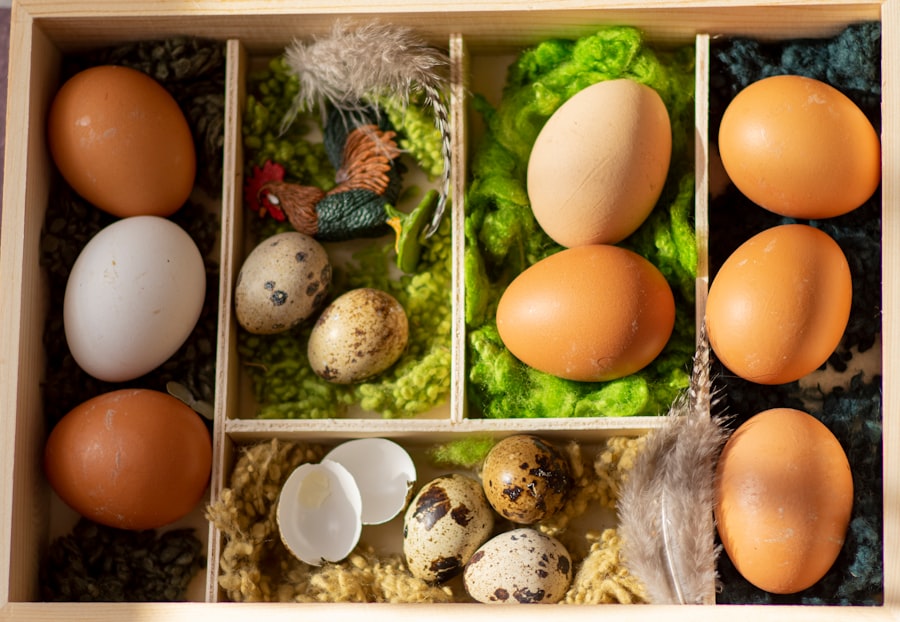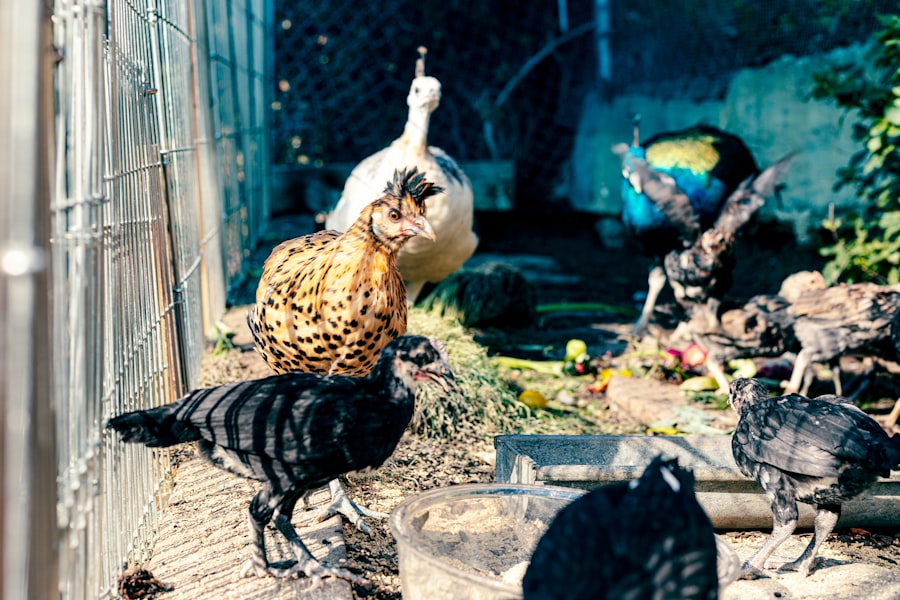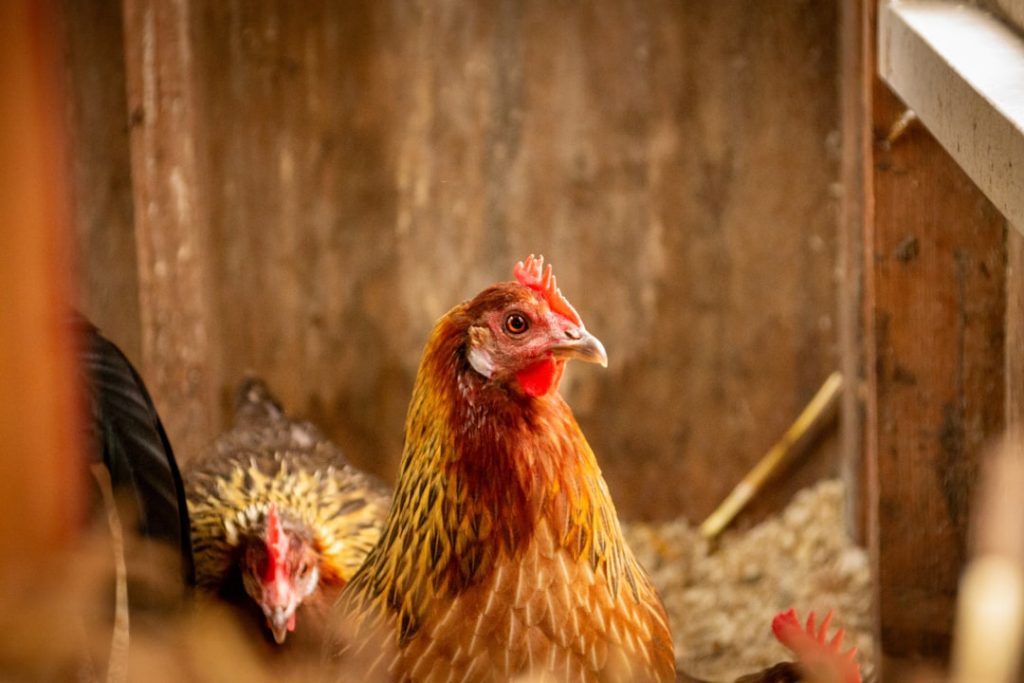Protecting chickens from predators is a crucial aspect of poultry keeping. Various animals, including foxes, raccoons, hawks, and domestic dogs, can threaten the safety of a flock. Predators are often persistent and resourceful in their attempts to access chicken coops, making it essential for keepers to understand local predator behavior and implement effective defense strategies.
Common predators exhibit different hunting patterns and abilities. Raccoons, for instance, are known for their manual dexterity and can often manipulate simple latches and doors. Hawks, on the other hand, are aerial predators capable of swift attacks from above.
Understanding these specific behaviors helps in developing targeted protection measures. Effective chicken protection strategies may include:
1. Installing physical barriers such as secure fencing and coop fortifications
2.
Utilizing natural deterrents
3. Regular maintenance of the chicken coop
4. Communicating with neighbors about potential risks
5.
Seeking professional assistance when necessary
6. Adhering to local regulations and ordinances regarding poultry keeping
By implementing a comprehensive approach to predator prevention, chicken keepers can significantly reduce the risk to their flocks and ensure a safer environment for their birds.
Table of Contents
- 1 Implementing physical barriers
- 2 Using natural deterrents
- 3 Properly maintaining your chicken coop
- 4 Communicating with your neighbor
- 5 Seeking professional help
- 6 Following local regulations and ordinances
- 7 FAQs
- 7.1 What are some effective ways to keep chickens out of my neighbor’s yard?
- 7.2 Are there any legal restrictions on keeping chickens in a residential area?
- 7.3 How can I train my chickens to stay within my property boundaries?
- 7.4 What should I do if my chickens are causing a nuisance in my neighbor’s yard?
Key Takeaways
- Understanding the issue: Recognize the importance of protecting your chickens from predators and the potential risks they pose.
- Implementing physical barriers: Install sturdy fencing and secure latches to keep predators out of the chicken coop.
- Using natural deterrents: Consider using natural methods such as predator urine or planting thorny bushes to deter predators.
- Properly maintaining your chicken coop: Regularly inspect and repair any damages to the coop to ensure it remains secure.
- Communicating with your neighbor: Discuss any predator issues with your neighbors to work together on finding a solution.
- Seeking professional help: Consult with local wildlife experts or pest control professionals for advice on dealing with persistent predators.
- Following local regulations and ordinances: Adhere to any local laws or regulations regarding the protection of your chickens and the handling of predators.
Implementing physical barriers
Securing the Perimeter
One of the most effective ways to protect your chickens from predators is by implementing physical barriers around your coop and run. This can include installing sturdy fencing around the perimeter of your coop, burying the fencing underground to prevent digging predators from gaining access, and adding a secure locking mechanism to all doors and windows.
Maintaining and Supplementing Barriers
It’s important to regularly inspect and maintain these physical barriers to ensure they remain effective in keeping predators out. Another physical barrier that can be effective in deterring predators is the use of motion-activated lights and sound devices. These can startle predators and deter them from approaching your coop.
Additional Measures for Maximum Protection
Additionally, consider installing predator-proof latches on all doors and windows to prevent raccoons and other dexterous predators from gaining access. By implementing these physical barriers, you can significantly reduce the risk of predators attacking your flock.
Using natural deterrents

In addition to physical barriers, natural deterrents can also be effective in keeping predators at bay. One such deterrent is the use of predator urine or scent markers around the perimeter of your coop. Predators such as foxes and coyotes are territorial animals, and the scent of a larger predator can deter them from approaching your coop.
Additionally, consider planting thorny bushes or shrubs around the perimeter of your coop to create a natural barrier that predators are less likely to penetrate. Another natural deterrent is the presence of guard animals such as dogs or geese. These animals can help protect your flock by alerting you to potential threats and deterring predators from approaching.
However, it’s important to properly train and socialize these animals to ensure they do not pose a threat to your chickens themselves.
Properly maintaining your chicken coop
Proper maintenance of your chicken coop is crucial in protecting your flock from predators. Regularly inspect the coop for any signs of wear and tear, such as holes in the fencing or loose latches on doors and windows. Additionally, keep the area around the coop clean and free of debris that could attract predators, such as food scraps or standing water.
By properly maintaining your chicken coop, you can reduce the risk of predators finding a way to access your flock. It’s also important to regularly clean and secure any food storage areas to prevent attracting rodents and other potential predators. By keeping the area around your coop clean and free of potential food sources for predators, you can reduce the likelihood of an attack on your flock.
Communicating with your neighbor
If you live in an area with other chicken keepers or potential predators nearby, it’s important to communicate with your neighbors about the issue of predator protection. By working together with your neighbors, you can develop a united front against potential threats to your flocks. This may include sharing information about local predator activity, coordinating efforts to deter predators, and even pooling resources to invest in communal predator protection measures.
Additionally, if you suspect that a neighbor’s pet may be posing a threat to your chickens, it’s important to have an open and respectful conversation with them about the issue. By communicating with your neighbor about any concerns you may have regarding their pet’s behavior, you can work together to find a solution that ensures the safety of both your chickens and their pet.
Seeking professional help

Seeking Expert Advice
If you’re struggling to protect your flock from persistent predator attacks, it may be necessary to seek professional help. This could include consulting with a local wildlife expert or predator control specialist who can provide advice on effective deterrents and protection measures.
Reaching Out to Local Organizations
Additionally, consider reaching out to local poultry or farming organizations for guidance on predator protection strategies specific to your area. These organizations may have valuable insights and resources to help you protect your flock.
Professional Trapping and Pest Control Services
In some cases, it may be necessary to hire a professional trapper or pest control service to address a persistent predator problem. These professionals can help identify the source of the issue and develop a targeted plan to remove or deter the predator from targeting your flock.
Following local regulations and ordinances
Finally, it’s important to familiarize yourself with any local regulations or ordinances related to predator control and chicken keeping in your area. Some areas may have specific guidelines regarding the use of traps or deterrents for certain types of predators, so it’s important to ensure that you are in compliance with these regulations while protecting your flock. Additionally, if you suspect that a neighbor’s pet is posing a threat to your chickens, it’s important to familiarize yourself with any relevant animal control laws or ordinances that may apply.
By following local regulations and ordinances, you can protect your flock while also being a responsible member of your community. In conclusion, protecting your chickens from predators requires a multi-faceted approach that includes understanding the issue at hand, implementing physical barriers and natural deterrents, properly maintaining your chicken coop, communicating with your neighbors, seeking professional help when necessary, and following local regulations and ordinances. By taking proactive measures to protect your flock, you can ensure their safety and well-being while enjoying the many benefits of keeping chickens.
If you’re looking for ways to keep chickens out of your neighbor’s yard, you may want to consider building a secure chicken coop. Check out this article on The Chicken Coop Country Diner for tips on creating a safe and comfortable space for your chickens. A well-designed coop can help prevent your chickens from wandering into your neighbor’s yard and causing any disturbances.
FAQs
What are some effective ways to keep chickens out of my neighbor’s yard?
Some effective ways to keep chickens out of your neighbor’s yard include installing a fence around your property, using chicken wire or netting to create a barrier, and training your chickens to stay within designated areas.
Are there any legal restrictions on keeping chickens in a residential area?
There may be local ordinances or zoning regulations that dictate the number of chickens allowed, the distance they must be kept from neighboring properties, and other requirements for keeping chickens in a residential area. It’s important to check with your local government or homeowners’ association for specific regulations.
How can I train my chickens to stay within my property boundaries?
You can train your chickens to stay within your property boundaries by using positive reinforcement, such as treats, to encourage them to stay within designated areas. Additionally, providing a secure and comfortable coop for your chickens can help keep them from wandering into your neighbor’s yard.
What should I do if my chickens are causing a nuisance in my neighbor’s yard?
If your chickens are causing a nuisance in your neighbor’s yard, it’s important to address the issue promptly and consider implementing measures to keep your chickens contained within your property. Open communication with your neighbor and finding a mutually agreeable solution is key to resolving any conflicts.
Meet Walter, the feathered-friend fanatic of Florida! Nestled in the sunshine state, Walter struts through life with his feathered companions, clucking his way to happiness. With a coop that’s fancier than a five-star hotel, he’s the Don Juan of the chicken world. When he’s not teaching his hens to do the cha-cha, you’ll find him in a heated debate with his prized rooster, Sir Clucks-a-Lot. Walter’s poultry passion is no yolk; he’s the sunny-side-up guy you never knew you needed in your flock of friends!







